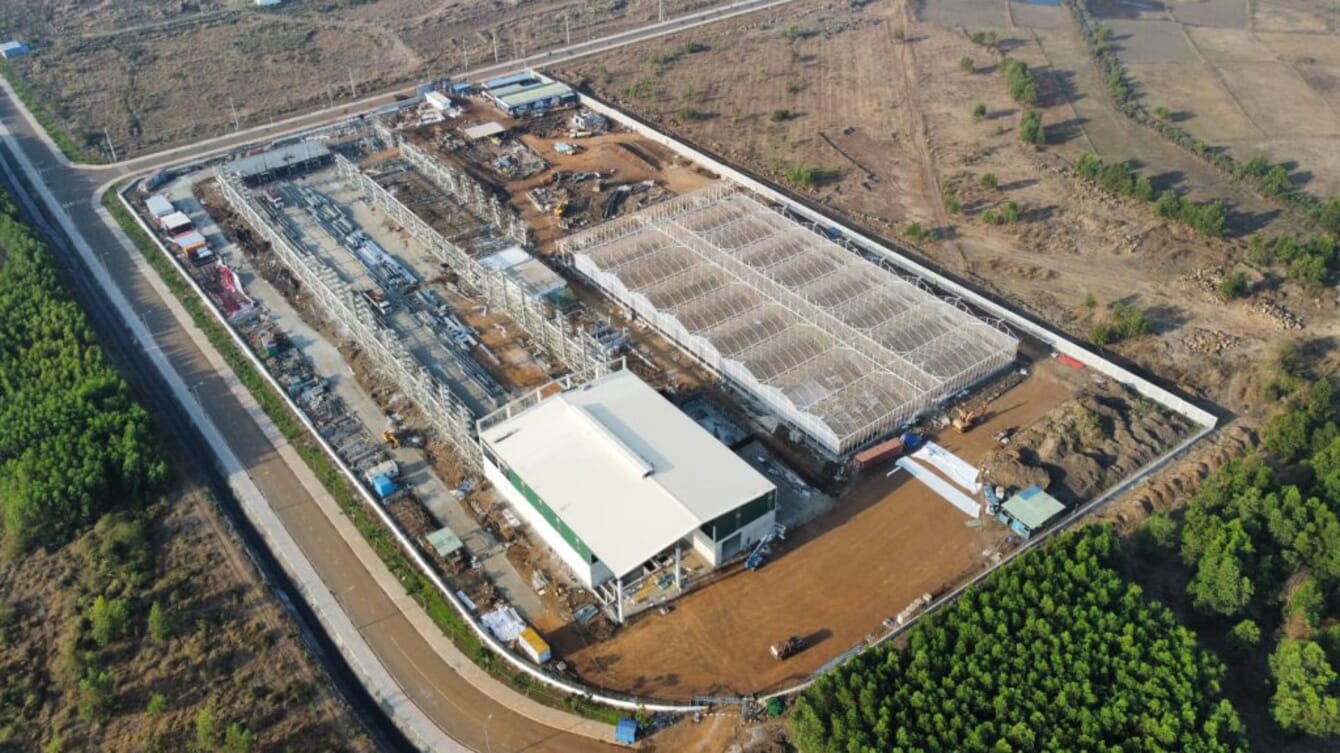
When completed it will have the capacity to produce 10,000 tonnes of insect meal annually © Entobel
As part of a long-term collaboration agreement that includes early-stage project development support, IFC will support Entobel’s expansion in Vietnam and the region.
Based in Singapore, Entobel produces protein from black soldier fly larvae on a commercial scale, for aquafeeds and pet food. Entobel is currently building Asia’s largest insect plant to date in Vung Tau province, Vietnam, which will supply 10,000 tonnes of insect meal annually. The construction is on schedule and the first commercial sales are expected later this year.
The main product of Entobel is insect meal, which is used, among other applications, as a sustainable alternative to fishmeal in the aquaculture industry.
“We are impressed by Entobel’s operations in this innovative industry, which can provide a sustainable high-protein alternative to wild-caught fish used in aquafeed. Reaching scalable levels of production will help protect marine ecosystems and reduce the depletion of ocean resources. We are happy to support Entobel on this exciting and impactful journey,” said Thomas Jacobs, IFC country manager for Vietnam, Cambodia, and Lao PDR.
Entobel co-founders Gaetan Crielaard and Alexandre de Caters, both Belgians, moved to Vietnam in 2013 after realising the vast potential of this new and innovative industry. Southeast Asia is a main aquaculture hub and the tropical climate is ideal to rear the black soldier fly with relatively low energy costs compared to competitors in Europe.
“After spending almost 10 years in Southeast Asia, we know we have made the right decision to start our company here. We are aligned with IFC on focusing on the tropical region to minimise our environmental footprint and remain highly competitive,” said de Caters.
”We are proud to count IFC as a partner. This will enable us to accelerate international expansion in Asia where we are convinced the strongest growth potential lies for this industry. It is essential for Entobel to contribute to a more sustainable aquaculture industry and help reduce the oceans’ depletion. To achieve our ambitious impact goals, scale and industrialization of the model is needed,” added Crielaard.


